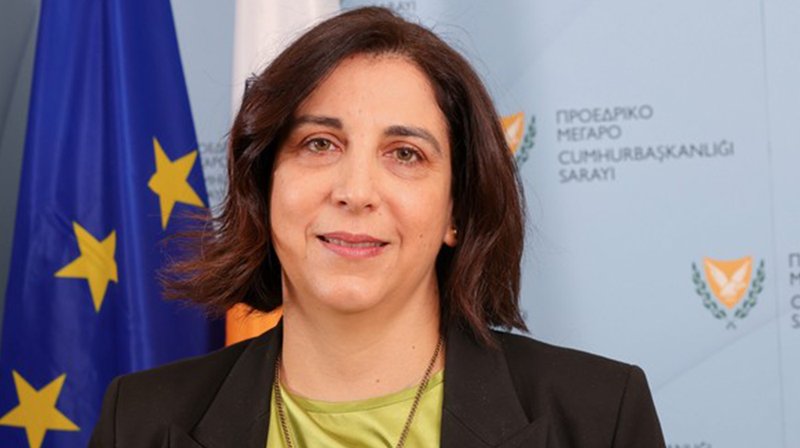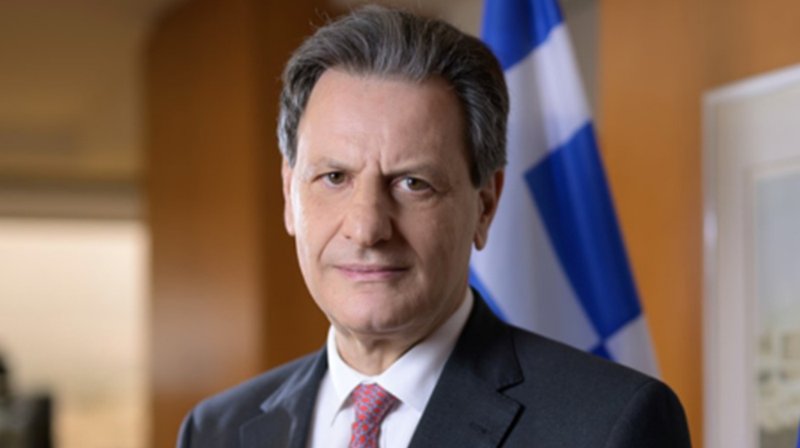Stakeholders gathering in Nicosia to discuss GSI's future
07:25 - 10 September 2024

Representatives of all the stakeholders in the Great Sea Interconnector (GSI) are due to meet under President Nikos Christodoulides on 10 September to discuss the next steps to be taken in the much-debated project.
According to Christodoulides' official programme for the day, he will be presiding over the meeting which is due to take place at the Presidential Palace from 3.30pm.
The aim of the meeting is to have all parties present at the same time to provide answers to the Government's clarifying questions and to avoid any ambiguity about the project. However, final decisions on the part of the Government are not expected to be made at the end of the meeting.

President Nikos Christodoulides
Government Spokesman Kontantinos Letymbiotis has announced that the meeting would be attended, on behalf of the Republic of Cyprus, by the Minister of Energy George Papanastasiou, Minister of Finance Makis Keravnos, the Deputy Minister to the President Irene Piki, and representatives of the Law Office, and on behalf of the Greek government, Minister of Energy Theodoros Skylakakis.

Energy Minister George Papanastasiou
Also anticipated to attend are a representative of the European Commission, and representatives of the Greek Independent Power Transmission Operator - IPTO (ADMIE) and NEXANS, the company responsible for setting up the cable for the potential electrical interconnection between Cyprus and Greece.

Finance Minister Makis Keravnos
State representatives in Cyprus including President Christodoulides, meanwhile, on 9 September, met to convene to prepare for the meeting with the other stakeholders.

Deputy Minister to the President Irene Piki
The GSI Cyprus-Greece electrical interconnection project aims to end Cyprus’ electricity isolation but the project has been delayed by concerns raised by the state and other involved parties.

Greece's Energy Minister Theodoros Skylakakis
In recent statements to the media, the President noted that "as a government we are solely accountable to the Cypriot people and any decision we take will primarily serve the interests of the Cypriot people."
The issue was recently also the subject of Cabinet discussions.
Persisting stakeholder concerns, however, including how the project will affect conventional energy production as well as the development of renewable energy sources (RES) in the country and how it will impact electricity consumption prices. There is also concern over which party would be responsible for shouldering the cost of the project being impacted by geopolitical developments.

"The importance of the Crete - Cyprus electricity interconnection project both as a strategic project and in terms of its economic dimension and the role it can play in the energy planning of our country and the EU is indisputable," Letymbiotis has also recently said in a written statement.
Meanwhile, when asked if the Ministry of Finance’s position is to pause the project Permanent Secretary George Pantelis recently reiterated that "we need to have a complete picture to be able to make a technocratic and objective assessment of the project."
Pantelis also indicated the Ministry agreed with a decision of the Cyprus Energy Regulatory Authority (CERA) not to pass on the project's cost to consumers before its implementation.
The project has also become a topic of concern in the ranks of the Electricity Authority of Cyprus (EAC), with the Authority saying it is monitoring developments and awaiting the cost-benefit study, in order to formulate its position on the subject.

